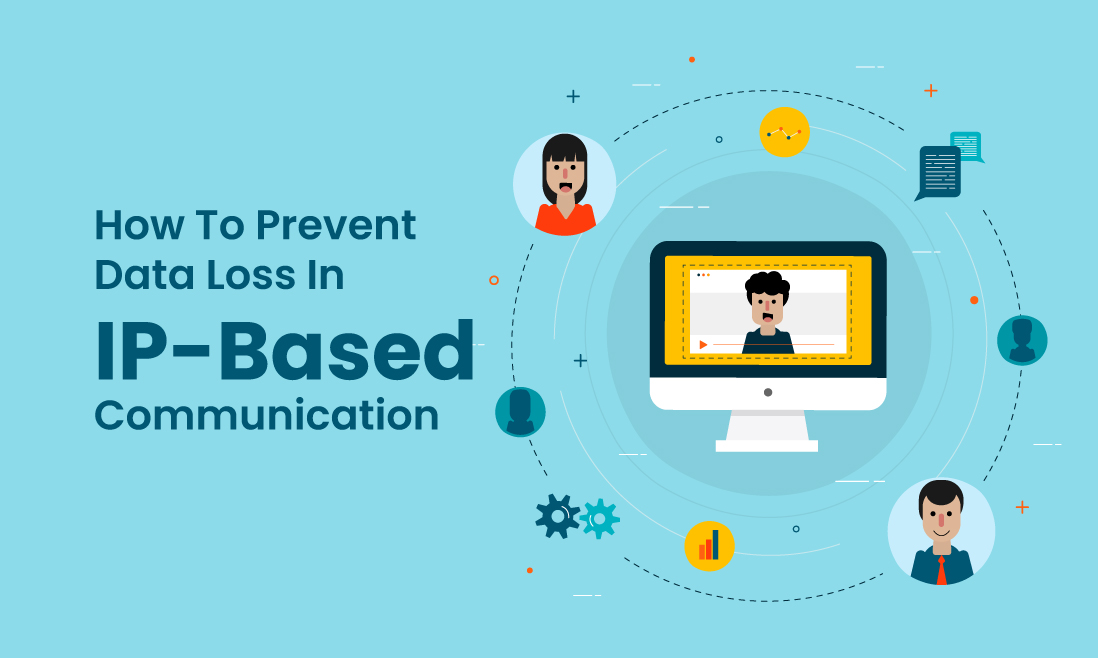
Most business organizations or companies collect a lot of data including those that are IP-based. The data collected are crucial and it takes a lot of trust in a company to provide these data. If a company loses them, most customers may develop a negative attitude and doubt their integrity. For this reason, companies, especially those that collect IP-based data must put in place strategies to prevent such loss. In this article, we shall see some of the ways that one can put in place to safeguard the data collected.
The strategies discussed here refer to best practices taken to prevent sensitive data from being leaked outside an organization’s system or even being stolen. To do this, the IT department puts in place technologies that can scan and analyze stored data mostly in cloud storage to detect and safeguard data. You can find more data recovery insights at Handy Recovery Advisor. But how can you prevent data loss? Read on to find out.
Why Should You Prevent Data Loss?
If an organization collects crucial data from its clients for instance, then there is a need to put more effort into preventing these data from ending up in the wrong hands or being lost. The first step here is to acknowledge the fact that it is very easy to lose data over the internet. These organizations need to prevent themselves from attacks such as Corruption of Software or hardware.
Hardware can easily develop significant issues that can be catastrophic just like software. Such attacks can cause disk corruption and can easily cause much damage. Therefore, an organization must put in place strict strategies to minimize the risks that can lead to such incidents.
Organizations also need to be aware of potential threats that may arise from within them. For instance, some criminals may attempt to access data fraudulently to sell in the black market. It is therefore very necessary for organizations to put in place mechanisms to prevent unauthorized personnel from accessing or acquiring such data.
Another reason why an organization may need to put in place Data Loss Protection strategies is to avoid the ransomware attack that can be undertaken by cybercriminals. Ransomware occurs when an illegitimate message is sent and made to look genuine often containing links. Through these fraudulent links, malware is planted in the database of an organization.
Such malware is designed to encrypt key information and send them back to the attackers. For reasons such as these, an organization especially those with IP-based communication should invest accordingly in Data Loss prevention strategies.
Strategies to Prevent Data Loss in IP-based Communication
From the above discussion, Data Prevention is key. Read through the strategies we have suggested below so that you are never sorry but know exact steps to prevent unwarranted loss of data.
Put encryption key to safeguard documents
To encrypt a data or file is to put a security key that can only be retrieved by use of a decryption key. This will prevent unauthorized personnel as well as cyber attackers without the key from accessing the file.
By all means, encrypting crucial data is a much safer method of prevention as compared to other methods for it prevents both loss of data and theft.

Putting in place Access features
Access features work by locking out unwanted individuals. This can be done either by putting passwords, multiple authentication keys, or role-based controls. This feature works by requiring officers with access to sensitive information such as the IP address of clients to input their username and password in order to have access to the information.
The challenge here is that an attacker can easily guess the username or password especially if he or she is close to the authorized personnel.
It is therefore necessary to have another layer of protection which is multi-factor authentication. Here, a company can use either fingerprints or scanning of the eyeballs to access the files. Also, organizations can use different levels of responsibility among their staff.
For example, rather than having everybody including a junior employee such as a janitor have access to an office containing sensitive files, a company may opt only to have the IT manager have access. Together with other prevention methods, the data can be safe, and the company can adhere to set policies on data protection.
Classification of data
Rather than having jumbled-up data, it is necessary to classify data from the most sensitive to the least sensitive one. With this classification, an organization can easily allocate resources to the most sensitive and valuable data. This identification will also enable you to select the type of security feature to have in place.
Having periodic Security checkups and tastings
An organization needs to have an auditing of its secured data frequently as well as have policies and procedures in place. The regular audits will reveal where there may be vulnerabilities that can then be fixed.
There can be pen testing just to be sure there are no leakages in the whole system. As seen, the main reason for these testing and reviews is to identify weak points and work on them accordingly. By doing this, an organization in the long run is able to avert any threat that may come their way thus maintaining their reputation.
Regular training of employees
Another step that can be undertaken by these IP-based communication organizations is to regularly train their employees so as to avoid any human error that may lead to data breaches. As had been discussed, for a ransomware attack to be successful, it needs a person clicking on the suspicious links thus to prevent this, an organization needs to train its employees on basic safety tips for cyber-attacks.
Once a company has come up with strategies, policies, and procedures for the security of data, the employees need to be trained to be able to put them in place effectively.
Conclusion
The above discussed strategies all aim at Data Loss Prevention, especially in IP-based communication. They aim to secure sensitive data to safeguard customers and even employees. This also helps to maintain a higher reputation. An organization should never take lightly the matter of securing data, especially those involved with IP addresses as these are very crucial data.
Share this post
Leave a comment
All comments are moderated. Spammy and bot submitted comments are deleted. Please submit the comments that are helpful to others, and we'll approve your comments. A comment that includes outbound link will only be approved if the content is relevant to the topic, and has some value to our readers.

Comments (0)
No comment